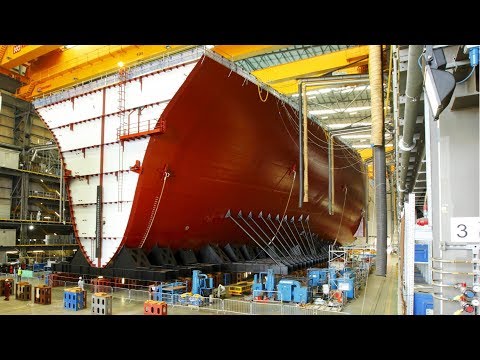- Getting Information — Observing, receiving, and otherwise obtaining information from all relevant sources.
- Evaluating Information to Determine Compliance with Standards — Using relevant information and individual judgment to determine whether events or processes comply with laws, regulations, or standards.
- Making Decisions and Solving Problems — Analyzing information and evaluating results to choose the best solution and solve problems.
- Drafting, Laying Out, and Specifying Technical Devices, Parts, and Equipment — Providing documentation, detailed instructions, drawings, or specifications to tell others about how devices, parts, equipment, or structures are to be fabricated, constructed, assembled, modified, maintained, or used.
- Interacting With Computers — Using computers and computer systems (including hardware and software) to program, write software, set up functions, enter data, or process information.
- Communicating with Supervisors, Peers, or Subordinates — Providing information to supervisors, co-workers, and subordinates by telephone, in written form, e-mail, or in person.
- Identifying Objects, Actions, and Events — Identifying information by categorizing, estimating, recognizing differences or similarities, and detecting changes in circumstances or events.
- Updating and Using Relevant Knowledge — Keeping up-to-date technically and applying new knowledge to your job.
- Communicating with Persons Outside Organization — Communicating with people outside the organization, representing the organization to customers, the public, government, and other external sources. This information can be exchanged in person, in writing, or by telephone or e-mail.
- Analyzing Data or Information — Identifying the underlying principles, reasons, or facts of information by breaking down information or data into separate parts.
- Thinking Creatively — Developing, designing, or creating new applications, ideas, relationships, systems, or products, including artistic contributions.
- Processing Information — Compiling, coding, categorizing, calculating, tabulating, auditing, or verifying information or data.
- Establishing and Maintaining Interpersonal Relationships — Developing constructive and cooperative working relationships with others, and maintaining them over time.
- Interpreting the Meaning of Information for Others — Translating or explaining what information means and how it can be used.
- Documenting/Recording Information — Entering, transcribing, recording, storing, or maintaining information in written or electronic/magnetic form.
- Monitor Processes, Materials, or Surroundings — Monitoring and reviewing information from materials, events, or the environment, to detect or assess problems.
- Inspecting Equipment, Structures, or Material — Inspecting equipment, structures, or materials to identify the cause of errors or other problems or defects.
- Organizing, Planning, and Prioritizing Work — Developing specific goals and plans to prioritize, organize, and accomplish your work.
- Estimating the Quantifiable Characteristics of Products, Events, or Information — Estimating sizes, distances, and quantities; or determining time, costs, resources, or materials needed to perform a work activity.
- Judging the Qualities of Things, Services, or People — Assessing the value, importance, or quality of things or people.
- Provide Consultation and Advice to Others — Providing guidance and expert advice to management or other groups on technical, systems-, or process-related topics.
- Coordinating the Work and Activities of Others — Getting members of a group to work together to accomplish tasks.
- Scheduling Work and Activities — Scheduling events, programs, and activities, as well as the work of others.
- Developing and Building Teams — Encouraging and building mutual trust, respect, and cooperation among team members.
Read More







